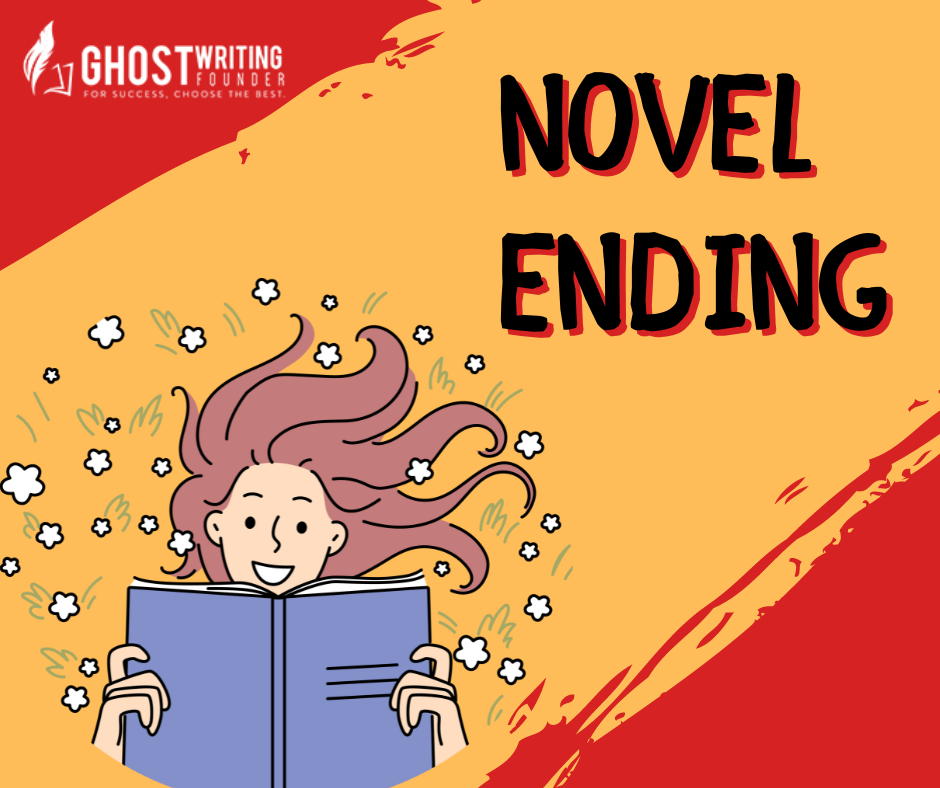
Novel
Creating a really interesting novel is like making a piece of art. But making a novel ending that makes readers want more is even harder. As a writer, a novel ending s your big opportunity to make people remember your writing journey long after they finish it. In this guide, we’ll talk about how to end your story in a way that makes readers happy with how things turn out and excited to read whatever you write next.
Crafting an Unforgettable Ending
The novel ending should reflect the main ideas it’s been exploring all along, wrapping things up correctly. Readers should sense that the ending fits with what they’ve been reading.
It’s important to tie up all the important parts of the plot, but you’ve got to do it carefully. Don’t rush through it. Instead, blend everything smoothly so it feels complete.
Even though it’s important to wrap things up in crafting a book, leaving a few things open can make readers curious. Let them wonder what might happen next. It’s like planting seeds for possible future stories.
The Power of Emotion
A good novel ending makes you feel something deep inside. Aim for moments that touch your heart, whether they bring happiness, sadness, or a mix of emotions.
As the story rising action unfolds, characters change, and their journeys should feel complete by the story’s conclusion. Ensure that their transformations are meaningful so that they resonate with your readers.
Find the right mix of wrapping things up neatly and leaving a bit of mystery. A well-rounded ending lets readers reflect on the story and wonder what could happen next.
Avoiding Common Pitfalls
Ending too quickly can make readers disappointed. Let the story unfold naturally, allowing each part to fit in smoothly.
While it’s good to be creative, make sure the ending makes sense in your created world. Sudden, strange endings can throw off readers.
Make sure things are clear, but don’t overload readers with too much information all at once. Give them the answers they need without ruining the flow and mood of the story.
Ensuring Consistency
The novel ending should fit well with the overall feel of the story, especially in the non-fiction genre. This makes the reading experience smooth and enjoyable for your audience.
The characters need to stay true to themselves until the very end. Readers should still see them as the same people but change in ways that make sense based on the story.
Know what your readers expect, and then smartly give them something unexpected. A surprising ending can be memorable, but it should still fit with the mood and ideas of your story.
Leaving Room for Sequels
An engaging novel ending should hint at the possibility of more adventures. You can introduce new storylines or mysteries that make readers curious to follow your characters into another book.
Drop hints about what might happen next. Sneak in little clues in the ending that suggest more stories are waiting to be told, getting readers excited to dive into them.
Create a world that feels big and full of possibilities. Whether it’s through describing interesting places or showing complex relationships between characters, leave enough unsaid so readers want to know what happens next.
Engaging the Reader’s Imagination
A mysterious novel ending gets people talking and lets readers think about what it all means on their own. The trick is to give enough details but also leave space for different ideas.
Ask questions that stick with your readers. When things aren’t tied up neatly, it makes people wonder, keeping your story alive even after they’ve finished reading.
Keep the guessing game going by dropping hints throughout the ending. Leave little clues for readers to pick up on, making them feel like they’re part of the story, too.
Finalizing the Climax
The climax is when all the tension and drama reach their highest point. You want to build up to it gradually, making sure it’s really exciting and meaningful.
The climax is where the main problem gets solved. Make sure it feels like the characters earned it and that it fits with the story’s big ideas.
A good climax leaves readers feeling amazed. It should be surprising and make sense, so it sticks with your audience long after reading.
Staying True to Your Voice
Stick to your style and ideas when you’re writing. Readers can tell when you’re being real, and they’ll like your work more. Keep an eye on what’s popular, but don’t change who you are to fit in.
Find a way to mix what people like with your way of doing things so your endings still feel like yours. Trust yourself when you’re being creative. Making a great ending means using your imagination and taking chances. Be bold and try new things to make an ending that people won’t forget.
The Role of Professional Services in Evaluating Endings
Professional services such as Ghost Writing Founder play a vital role in providing valuable feedback on the effectiveness of your novel ending. These services employ a diverse range of readers to review your ending, offering insights from various perspectives.
It’s crucial to carefully consider the feedback provided by professionals. If multiple individuals highlight similar aspects or issues with your ending, it’s important to take note and prioritize addressing these concerns. Utilizing the feedback provided by professionals can significantly enhance the quality of your ending, ultimately improving the overall impact of your story.
Conclusion
Creating a novel ending that makes readers want more involves finding the right mix of closure and excitement. Authors can do this by focusing on the main ideas, stirring feelings, and leaving space for imagination. Trying out new ideas and thinking creatively when wrapping up a story is important.
Adding elements like uncertainty, unexpected twists, and deep emotions can make endings memorable and keep readers thinking. Remember, the end of a story is just the start of something new. Authors who craft powerful endings excite readers for what comes next in their literary journey.









Leave a Reply